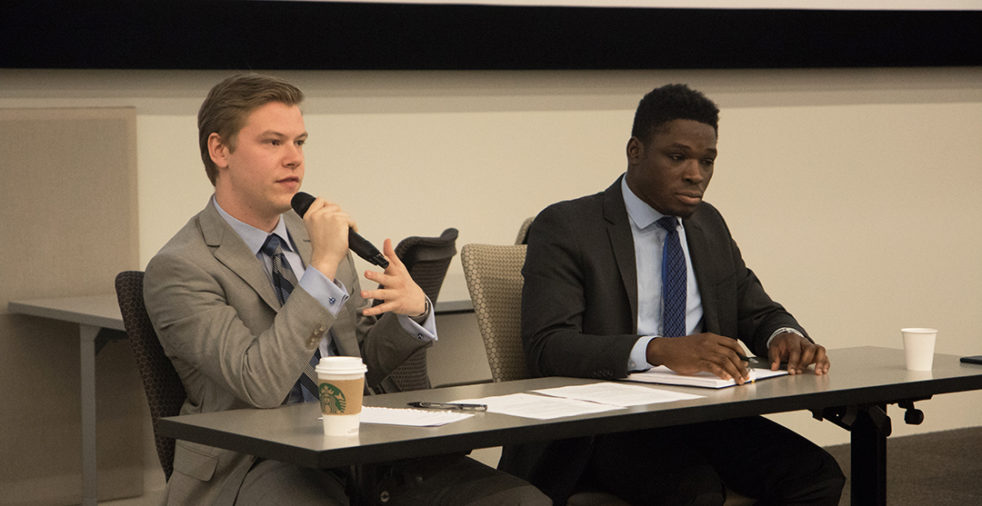As the tenure of SGA leaders Evan Gillon and Ayodeji Aladesanmi comes to a close, students are beginning to get a clearer picture of what the duo’s impact on campus will look like moving forward. We took a retroactive look at their platform to see how it lines up with SGA’s recent achievements.
The platform is divided into discrete ‘commitments’ that address issues regarding several different aspects of Tech’s campus: Academics, Campus, Mental Wellness, Empowering Students, Inclusivity and Sustainability. As with every SGA platform, the duo’s efficacy in accomplishing these goals varied as widely as their scope.
Several of the document’s points are still major campus pain points, with seemingly little to no progress being made. They promised an effort to create discipline-specific career fairs — a perennial wish for Ivan Allen students — and yet the meager progress made in this arena wasn’t even pushed by SGA. Their promise to support the campus art community rang hollow when they did nothing to advocate for Under the Couch in their fight for space until pushed to do so. And while they did distribute a list of “best practices” for professors, it amounted to nothing more than a verbose list of common sense guidelines.
These are just the most flagrant issues; several of the platform’s points seem to have fallen by the wayside as the year has gone on.
However, these shouldn’t overshadow the positive work that Evan and Ayo have done. Historically, one of SGA’s biggest issues has been a lack of transparency. SGA typically only enters the student consciousness during the two weeks that candidates’ names are plastered all over Greek housing. The last year has seen a dramatic increase in communication via newsletter, social media and meetings with campus leaders.
Additionally, despite their inaction with Under the Couch, they’ve made great strides in establishing an Arts Council to make decisions regarding arts organizations on Tech’s campus.
Several of their efforts, such as high-level policy suggestions, mini-mesters and work on Tech’s upcoming GT CARE Center, are playing out behind the scenes and won’t be seen until well after the two have crossed the graduation stage.
Though they were able to contribute to these long-term projects, a single academic year is too short to make a significant impact on Tech’s campus. This is compounded by the fact that, compared to the administration on Georgia’s Board of Regents, SGA’s power is but a drop in the bucket.
Why, then, do candidates continue to promise things that are clearly out of their purview? Several of the platform’s bullet points read more like a wish list than a series of actionable items. A perfectly transparent SGA would make known what it can and cannot do.
The platform, while more realistic than previous years, is vague. Because they ran unopposed they had the opportunity to present tangible plans for their inevitable victory instead of appealing to the masses. Instead, they carried this lack of clarity into their term, leaving us wondering what had been done.
